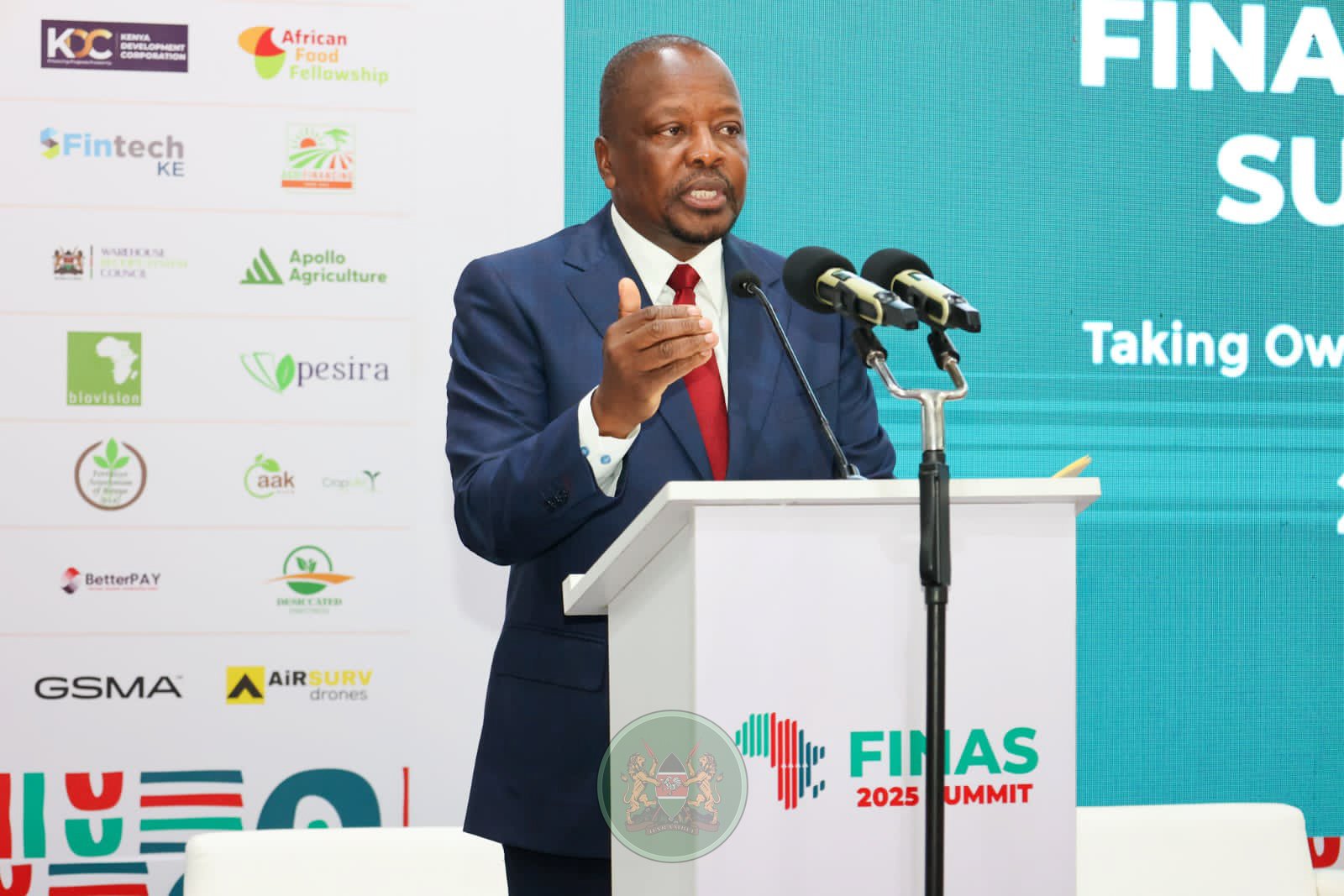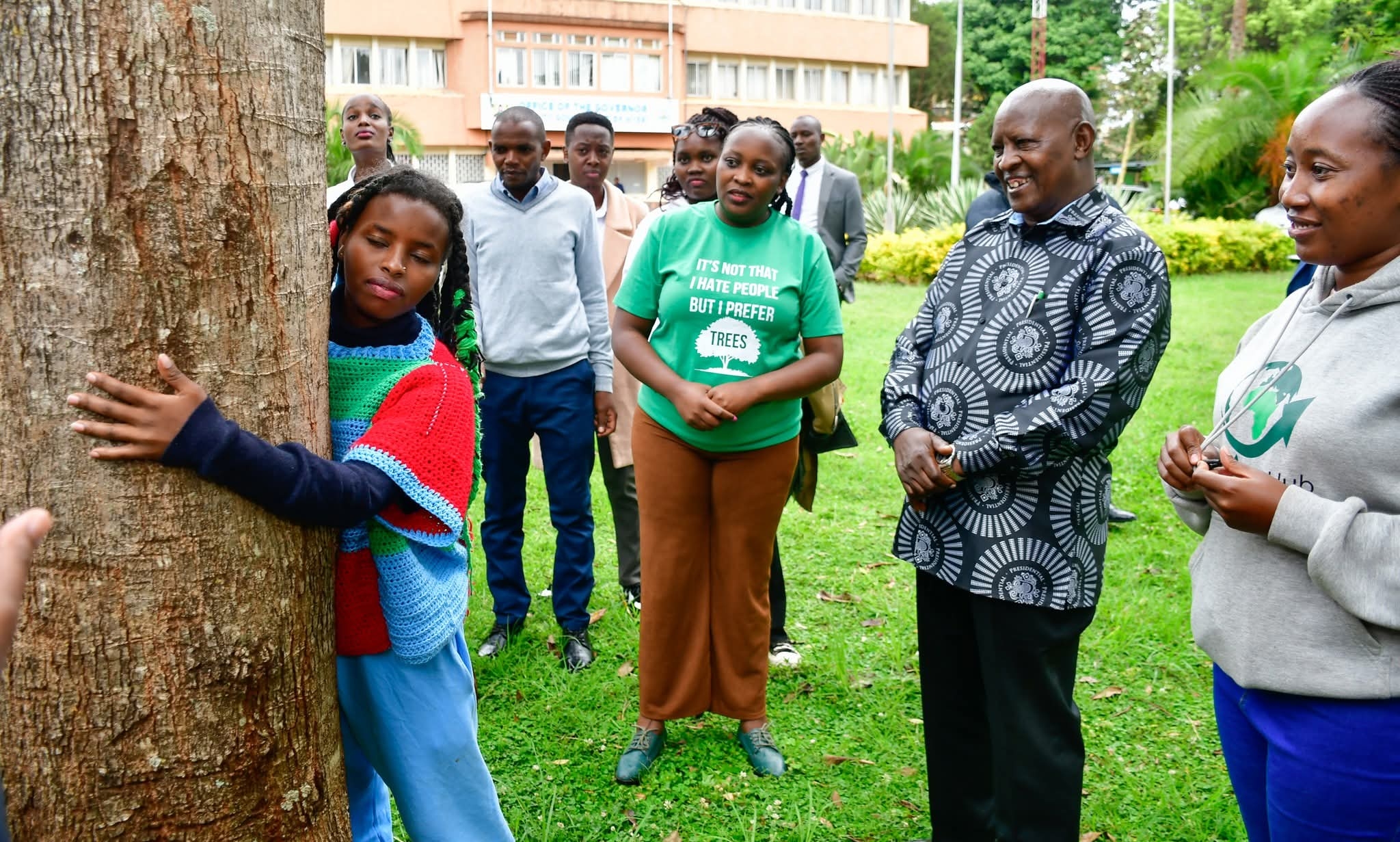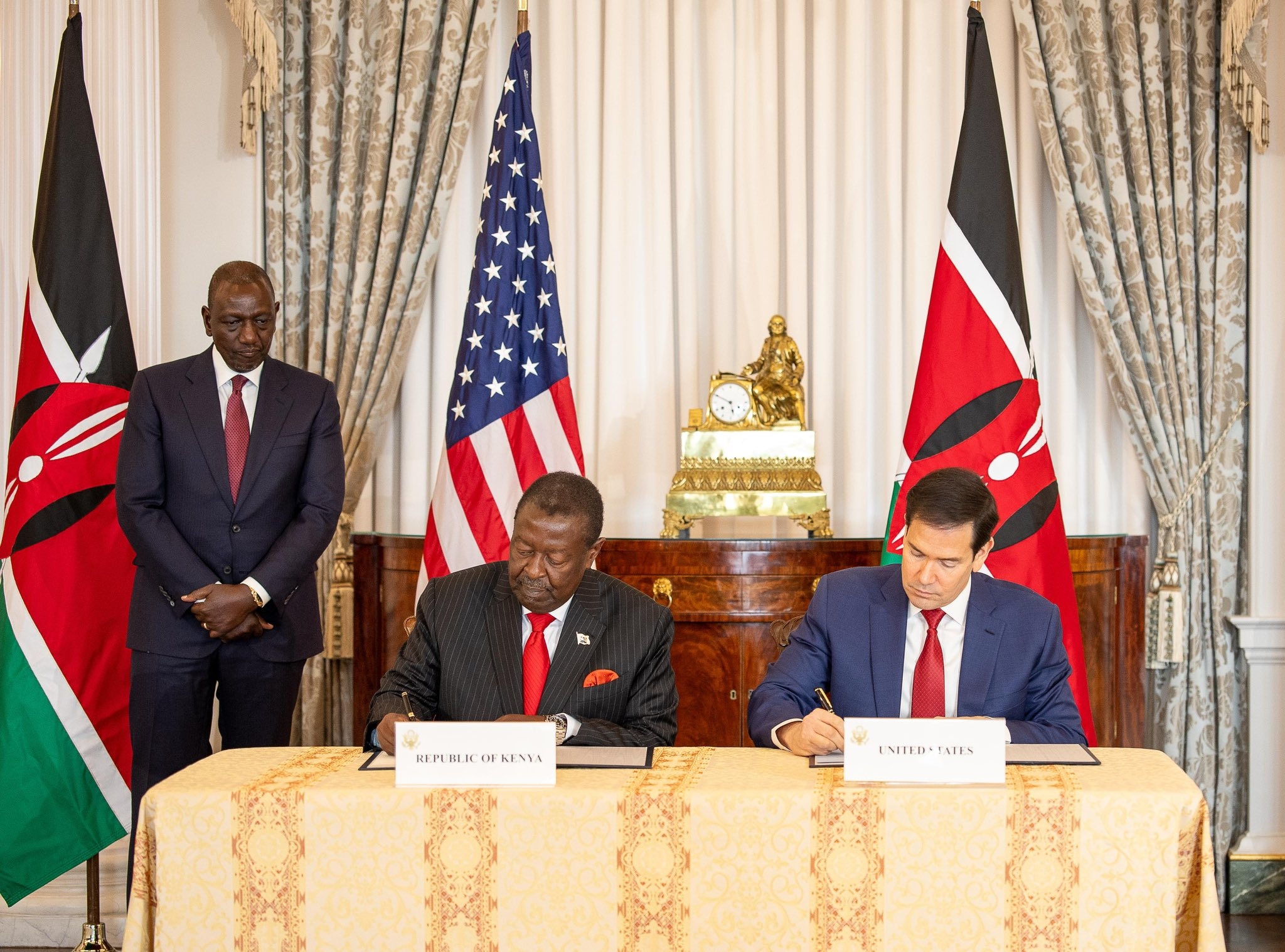
 Agriculture Cabinet Secretary Mutahi Kagwe when he opened the Finas summit in Nairobi on May 20, 2025/MOA
Agriculture Cabinet Secretary Mutahi Kagwe when he opened the Finas summit in Nairobi on May 20, 2025/MOACabinet Secretary Mutahi Kagwe has announced the creation of a Projects Implementation Monitoring Unit (PIMU) under his office.
Addressing participants at the 2025 FINAS Summit, the CS stated that accountability must accompany any new investments in the sector.
“As we push for more financing, we must be the first to demand accountability, from ourselves. Every shilling spent must show impact,” he said.
The new unit, PIMU, will consist of technical experts drawn from the ministry and partner institutions, he said.
It will monitor project implementation at the grassroots level and report progress to the CS’s office on a monthly basis.
“This unit will cure a long-standing gap in oversight. We have had good plans and big budgets, but poor delivery. We cannot afford that anymore,” the CS stated.
PIMU’s creation is part of broader reforms aimed at aligning resources to national priorities such as food security, youth employment, and climate resilience.
The unit will track timelines, budgets, and impact metrics for both public and donor-funded programs.
“This is about ensuring that the money reaches the farmer, the seeds are delivered on time, and training happens at the right place,” he explained.
The CS called on development partners and stakeholders to support the initiative and ensure it remains independent and data-driven.
“Implementation is everything. Without oversight, we are just talking. This unit is our guarantee that words will become action.”
The move has been welcomed by civil society, sector analysts and partners who have long pushed for stronger monitoring frameworks in the country’s agriculture sector, which accounts for a significant share of GDP but often struggles with fragmented execution.
German Embassy’s Head of Cooperation Daniel Guenther said there was need to have clear legal framework conditions to ensure the set objectives in the sector are achieved.
This, as he called on the government to be more transparent on the use of public resources.
He said: “Taxpayers contribute a lot of money and so you have to use it in a efficient way to avoid wastage.”
The government, he added, should put more effort in bringing the private sector on board noting the taxpayers money alone is not enough to help increase productivity in the agriculture sector.
FINAS summit is scheduled to take place from May 20-22.
The landmark summit brings together a diverse mix of African and international stakeholders to explore sustainable pathways for financing the continent’s food systems.
Under the theme “Taking Ownership: Rethinking Sustainable Financing for Africa’s Food Systems,” the summit builds on momentum from the FINAS 2024 dialogue and months of focused pre-summit engagement.
Over three days, the summit will spotlight the urgent need to close the agricultural financing gap while fostering innovative, inclusive, and resilient investment solutions.
Discussions will center on practical ways to strengthen farmer cooperatives, promote inclusive finance, de-risk agri-food investments, improve policy and regulatory environments, and leverage digital technologies to scale access and impact.
The ultimate goal is to drive transformative change across Africa’s food systems by turning dialogue into action.
FINAS 2025 will be central to delivering on commitments of African Governments on various agreements including the recent Kampala Declaration.
In her remarks, East African Community Secretary General Veronica Nduva stated that the agri-food systems value chain remains the backbone of the Partner States’ economies providing livelihoods and driving regional growth.
“The EAC promotes digitalisation in financing the agricultural sector to improve efficiency, reduce costs, and increase accessibility for farmers," said Nduva.
This, she said, is achieved through initiatives like the East Africa Regional Digital Integration Project (EARDIP), which aims to enhance digital infrastructure, particularly in rural areas, and facilitate cross-border transactions.
EARDIP focuses on increased production, processing, storage, and marketing of agricultural products to achieve food security and eliminate hunger.
The Policy also emphasises on empowering youth, particularly women, youth, and vulnerable groups through better access to finance, innovation, technology and land.
“The urgency to transform our food systems is no longer a matter of choice, it is a necessity.The Kampala CAADP Declaration of January 2025 is our collective response to this urgency” said AU Commissioner, Agriculture, Rural Development, Blue Economy and Sustainable Environment Moses Vilakati.
He added, “We MUST re-think how to finance Agriculture. Traditional methods to support agri-food systems transformation have failed. We therefore need innovative financing mechanisms that re-risks investments, incentivize sustainability, and empowers smallholder farmers, especially women and youth.”
FINAS 2025 has attracted participation from across the board including farmers, entrepreneurs, digital innovators, the private sector, and government representation from national and regional bodies.
Among the major partners in the African dialogue include Kenya’s cutting ministries, GIZ, AGRA, FSD Kenya, Aceli Africa, Finance in Motion, the Africa Development Bank, Netherlands Food Partnership, Transformational Investing in Food Systems (TIFS), Heifer International, Digifarm, and several Financial lending institutions.













